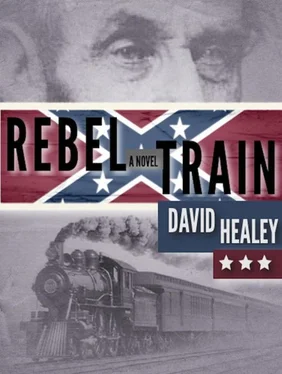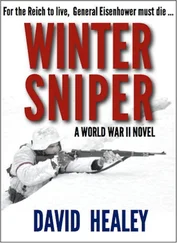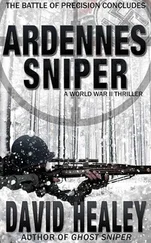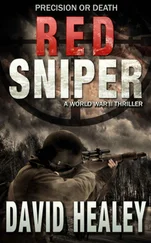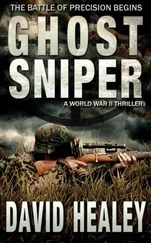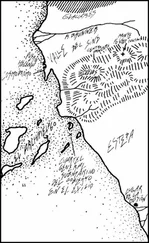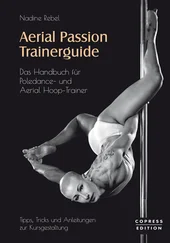“Got knocked out cold,” Frost said. “Must of landed on my damn head.”
“Good thing it’s hard,” Schmidt remarked.
“You can just go to hell, Schmidt, you dumb Kraut. I damn near got killed. Hell, I believe I’m seeing double.”
“All right, all right,” Greer said. “Ain’t none of us feeling spry at the moment. But we’d best get on after our train.”
Schmidt and Frost stared at him.
“What are you two gawking at?”
“Hell, Greer, we ain’t going to catch that train now.”
“Not standing around we ain’t. Let’s get moving.” He turned and started toward the overturned hand car.
“You’re crazy, Greer,” Schmidt said. “You know that?”
Greer wheeled, his face contorted in anger. “Let me just remind you two goddamn fools of something. I’m the conductor—” he stabbed a finger at Schmidt, then Frost “—you’re the engineer, and you’re the fireman of that train.” He pointed into the distance, where they could just see a plume of black smoke moving west, away from them. “That train is our responsibility, passengers and payroll money, too, and we allowed the train to be stolen and the passengers’ lives to be put in danger. I don’t care if it was Rebels, horse thieves or Injuns that stole it, and the B&O Railroad ain’t going to care. All that matters is that it got stolen. Now, if we catch that train, there might still be some chance of staying employed by the B&O. If we don’t catch that train, we ain’t going to have jobs on a train ever again. Nowhere, no how. Now, you tell me, are you jackasses going to help or not?”
Torn and bleeding, the two men looked stunned. Greer stared hard at them for a long moment, then turned abruptly and stomped over to the hand car, which lay half-buried in the weeds. He grabbed the frame and began tugging furiously at the car, trying to upright it, but it was too heavy for one man to move. Finally, Schmidt and Frost went to help. Once they raised the car enough for Schmidt to get his shoulder under it, they were able to tip the car back onto its wheels. That was the easy part. It was only after much swearing and sweating that they managed to wrestle the car back onto the tracks on the other side of the gap the raiders had made.
By then, the Chesapeake’s smoke was gone from the sky. Silently, the three men began pumping up and down, and the car rolled off in pursuit of the stolen train.
11 a.m., near Mount Airy, Maryland
Percy ordered another halt and had his men tear up more rails. Once again, the raiders found that sabotaging the tracks was far from easy, and tearing up just two rails took them much longer than it had last time.
The colonel had Willie Forbes cut the telegraph wires again, just in case the ones near Hood’s Mill were repaired. Percy knew the raid’s success relied heavily on surprise. If the Yankees were able to send telegraphs ahead, the train could be stopped at the next town or village by placing logs across the tracks or even by throwing a switch that would send the train onto a siding.
The colonel was so preoccupied with watching the tracks behind them that he didn’t hear Flynn walk up.
“They won’t be catching up to us anytime soon,” Flynn said. “You saw what happened when they hit that gap back at the Twin Arch Bridge.”
“That’s what we officers do, Flynn,” Percy said. A note of bitterness crept into his voice. “We get paid to worry.”
“Then you don’t get paid enough. Besides, there were only three men chasing us. It wouldn’t have been much of a fight.”
“Maybe, maybe not.” Percy shrugged. At this point, we can’t afford to lose anybody in a fight, so why take the chance? Our orders are to get Lincoln to Richmond, not fight Yankees. You should know that better than anyone.”
“Then what about the passengers?” Flynn asked, ignoring Percy’s attempt to chastise him. “Do we put them off the train yet?”
Percy shook his head. “Not yet. The area we’re in is too densely populated. They’ll have cavalry down on us in no time. We’ve cut the telegraph wires here, but there must be others running north-south at every crossroads town. If a warning is sent north, the Yankees will be waiting for us at Harpers Ferry. So, the passengers stay. We can’t have them fanning out through the countryside, sounding the alarm. No, the passengers stay on board for now.”
“Whatever you say,” Flynn said. “But you can be sure there will be more trouble with the passengers before the day is through.”
Percy did not appear to be listening. He was staring down the tracks. “Damn,” he said. “Don’t those people know when to give up?”
The hand car rolled into sight. The three men aboard pumped wildly as they raced toward the train.
“ Jaysus , Mary and Joseph,” Flynn said. “Sure, and the bastards have gumption, whoever they are. I can’t believe they’re still after us, after running off the tracks back at that bridge.”
“You may get your fight after all, Flynn.” He turned and shouted, “Back on the train! “Let’s get moving.”
The hand car was moving at a good clip and the engine was at a virtual standstill. It was obvious the pursuers would soon overtake the train.
“Here they come.”
Percy turned and shouted a warning at Lieutenant Cater, who was leaning over the rail of the last car, revolver at the ready, Private Cook beside him. “Shoot them if they get too close,” Percy yelled.
Lieutenant Cater thumbed back the hammer on the Colt and took aim. “I’ve got the one with his back to us,” he said to Cook. “You take one of the others. Hell, if we don’t get them, that gap in the rails will.”
The pursuers were now so close that they could plainly see the three sweating faces of the men.
“Ready—”
At that moment, the men on the hand car quit pumping, letting the car coast. The gap in the rails was just ahead, but the car was slowing. This time there would be no spectacular derailment. The three pursuers glared defiantly at the train, which was struggling to lurch ahead.
“These Yankees don’t know when to give up,” Lieutenant Cater said, then pulled the trigger.
The bullet ripped the air above the pursuers, but all three men dove toward the deck of the car. Cater laughed. “Maybe they ain’t such fools after all. That ought to give them something to think about.”
One man jumped to his feet and shook his fist at them, yelling something unintelligible.
Cater laughed even harder and ripped another shot over their heads. The men ducked. As the raiders waited expectantly, the car rolled to a stop just in front of the spot where the rails were missing. No sooner had the car stopped than one of the men jumped down and began to run after the train. He favored one leg as he ran, but still moved quickly enough.
The Chesapeake gained speed slowly. As Cater watched, the man began to close the distance between them. He was short and broad, a born sprinter, and only what appeared to be a bad leg kept him from running even faster. The man’s face contorted with the effort, his eyes bugged out as he gasped for air. Cater could hear him panting.
Cater leveled the pistol at him.
“That’s close enough,” he warned.
“You stole my train,” the man managed to shout.
Cater grinned. “Ours now, Yank.” He cocked the pistol. “Don’t come no closer, or I’ll shoot.”
The sprinter didn’t slow down. He was like a human locomotive.
Still, Cater couldn’t bring himself to shoot the man. But if he came any closer—
With a sudden jolt, the train picked up speed. The sprinter struggled to keep up, but the train moved faster and faster until, winded and slowed by his bad leg, he began to fall behind. Finally, breathlessly, he stood with his hands on his knees, panting, then shook his fist at the train. “You ain’t seen the last of me!”
Читать дальше
